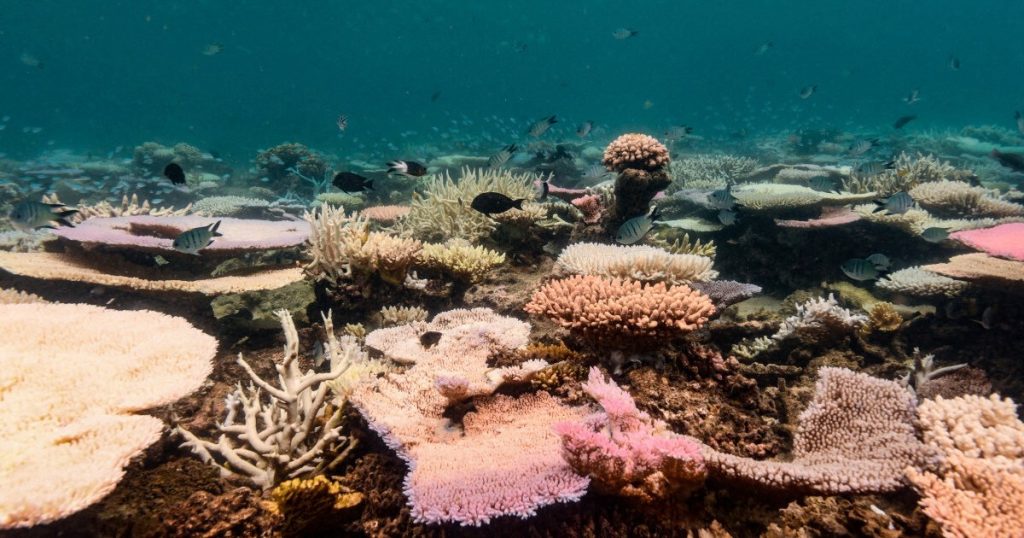This content discusses the global bleaching event that has affected coral reefs around the world due to rising ocean temperatures as a result of climate change. At least 54 countries and territories have reported mass bleaching on their reefs since February 2023, marking the fourth global bleaching event in the last three decades. Corals are invertebrates that live in colonies and form hard scaffolding that provides a home to colorful algae. When water temperature anomalies occur, corals expel the algae, leading to bleaching and ultimately death as the corals cannot survive without the algae’s nutrients.
The current bleaching event, as with previous ones in 1998, 2010, and 2014-2017, has been linked to the El Nino climate pattern, which causes warmer sea temperatures. Last year, sea surface temperatures broke records dating back to 1979 and have been further exacerbated by climate change. The Great Barrier Reef in Australia, known as the world’s largest coral reef system, has been severely impacted, along with regions like the South Pacific, Red Sea, and the Caribbean. Scientists warn that this intense and prolonged heat stress may prevent many reefs from recovering and could lead to their eventual decline.
Researchers are seeing mass die-offs in regions like the Caribbean, where coastal sea surface temperatures have been well above normal levels. Witnessing reefs turn white from bleaching has been unprecedented for marine ecologists, highlighting the severity of the current event. The situation has prompted experts to question the existing scientific models that predicted significant coral reef loss at 1.5 degrees Celsius above pre-industrial temperatures. With the world already warming by 1.2 degrees Celsius, the UN Intergovernmental Panel on Climate Change has warned that coral-dominated ecosystems will struggle to survive at this temperature.
Scientists express grave concern over the future of coral reefs, with some noting that these crucial ecosystems may have crossed a tipping point. Ecologists stress the urgent need to reduce carbon dioxide emissions to address climate change and mitigate further damage to coral reefs. The severity of the current bleaching event underscores the vulnerability of corals and the urgent need for global action to address climate change. Efforts to reduce greenhouse gas emissions and protect marine ecosystems are crucial to ensuring the survival of coral reefs and the countless species that depend on them for their livelihood.


